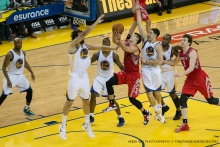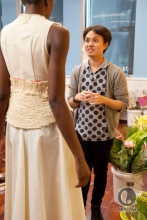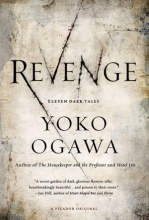Exactly one year after the cultural phenomenon known as "Linsanity," Jeremy Lin -- the Asian American basketball player at the center of it -- and Evan Jackson Leong -- the Asian American director who chronicled it -- both return home to the Bay Area. Terry K. Park takes a look at Leong's Linsanity and asks Jeremy Lin just how crazy it all was.
One year ago, there was not one, but two Linsanities.
First, there was the Linsanity that we all witnessed: that glorious stretch of games when an Asian American point guard from the end of the New York Knicks bench scored, passed, and even dunked like he was possessed by a higher power. Twitter feeds lit up like Times Square; marriage proposals and VaLINtine’s day cards were thrown at his feet; Lin-spired merchandise flew off the shelves like Lin’s lobs to Tyson Chandler; horrible Lin puns, like, “Lin-spired,” were churned out and judged by a giddy Spike Lee. Even President Barack Obama claimed he knew about his fellow Harvard alum before anyone else did. With each heart-stopping drive down the lane, and with each groan-inducing racist utterance from national commentators, there was an overwhelming sense that we, the Asian American we, were on the court with Jeremy—both the basketball court, and the court of public opinion. In the span of a month, Jeremy lifted a team, a city, and Asian America.
But how was Linsanity for Lin?
“It’s the craziest thing that’s ever happened to me,” said Lin at the Houston Rockets’s morning shootaround in San Francisco, on the day he faced the team that originally cut him, the Golden State Warriors, for their “Asian Heritage Night.” “It’s a great memory, and it’s something that I’ll have for the rest of my life.”
And from the hundreds of fans who stayed after the Warriors 116-107 loss to the Rockets (Jeremy had a double-double with fourteen points and eleven assists, and a couple of patented right-handed drives against his old teammate Stephen Curry), it was a great memory for many in the Bay Area, who watched Lin grow as a local high school champion and welcomed him back as the most popular benchwarmer ever for the Warriors.
Indeed, before Linsanity, there was just Lin. And that was enough for director Evan Jackson Leong and producer Bryan Yang to make a documentary about an Asian American basketball phenom from Palo Alto. They started following Jeremy at Harvard. They were there when he went undrafted. They were there when he outplayed John Wall for the Mavericks in summer league. And they were there when Jeremy signed a dream-come-true contract with his hometown Warriors. That’s where the documentary, according to Jerry Ma, a close friend of director Evan Jackson Leong and producer Bryan Yang, and the designer of the poster for Linsanity, was going to end.
“Originally, they were going to do a three-part web series and tell his story on how he made it to the NBA,” said Ma, on episode five of The Joy Dunk Club, a web-based roundtable talk-show based on Jeremy Lin and Linanity, created and hosted by this author. “It would’ve been an interesting story if Linsanity hadn’t happened,” argued Phil Yu of the popular blog Angry Asian Man, who briefly appears in Linsanity.
“But,” added Ma, “they really believed something better was going to come.” And they were right. Both Lin and Linsanity were rewarded for their persistence and hard work. How did Jackson, Yang, and company react when Linsanity happened? “Like being a kid again on Christmas eve and you got the present you were really hoping for,” said Ma. “They worked really hard.”
And now Linsanity, fresh off its successful world premiere at the prestigous Sundance Film Festival, kicks off CAAMfest as the opening night film. “Oh man, it feels great,” said Leong at the press conference for CAAMfest’s announcement of its film lineup, which included a screening of Linsanity. “I’m a born and bred San Franciscan, so it’s good to come home.”
Indeed, the elusive quality of home and what it offers—stability and recognition— is a familiar Asian American theme that runs through Linsanity. The film follows Lin’s nomadic existence as a professional basketball player, shuttling back and forth between the bright lights of Oakland and New York City and minor league outposts like Reno and Erie, Pennsylvania. All the while, Jeremy tries to maintain an optimistic attitude—and we see just how important his Christian faith is in keeping his spirit buoyed—but we also see the toll that benched, being cut, and being ignored takes on a young man.
The absolute low point in the film is the scene that features the now-famous couch in the apartment of his former Knicks teammate Landry Fields. It’s not even long enough to fit Jeremy’s 6’3’’ frame; we see him squirm to try to find a decent position, his neck craned over the side cushion, his back awkwardly angled, his Nike sneakers dangling off the edge. “How am I supposed to get a good night’s sleep?” wonders Jeremy. We wonder too. At this point, we see how high the odds are; and we see just how low Jeremy has sunk, faced with the sobering reality that his next game, against the Nets, might be his last in an NBA uniform. This is why, even for dedicated Lin fans who have replayed YouTube clips of his soaring dunk against the Washington Wizards, or his purple tongue-wagging against the Utah Jazz, or his last-second, game-winning shot against the Toronto Raptors, they will cheer that much harder.
The number “8” means good luck and fortune in Chinese. Perhaps the fact that Linsanity is listed at eighty-eight minutes long isn’t a coincidence, since there were two Linsanities.










